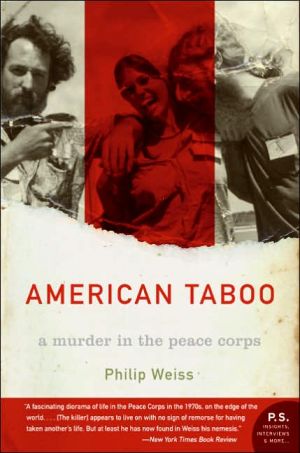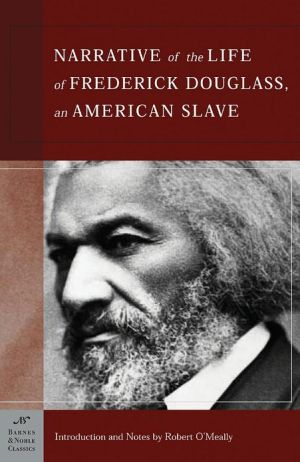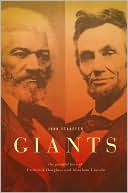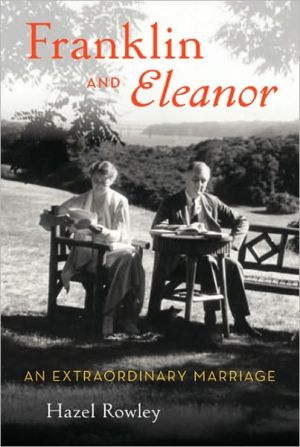American Taboo: A Murder in the Peace Corps
In 1975, a new group of Peace Corps volunteers landed on the island nation of Tonga. Among them was Deborah Gardner — a beautiful twenty-three-year-old who, in the following year, would be stabbed twenty-two times and left for dead inside her hut.\ Another volunteer turned himself in to the Tongan police, and many of the other Americans were sure he had committed the crime. But with the aid of the State Department, he returned home a free man. Although the story was kept quiet in the United...
Search in google:
In 1975, a new group of Peace Corps volunteers landed on the island nation of Tonga. Among them was Deborah Gardner — a beautiful twenty-three-year-old who, in the following year, would be stabbed twenty-two times and left for dead inside her hut.Another volunteer turned himself in to the Tongan police, and many of the other Americans were sure he had committed the crime. But with the aid of the State Department, he returned home a free man. Although the story was kept quiet in the United States, Deb Gardner's death and the outlandish aftermath took on legendary proportions in Tonga.Now journalist Philip Weiss "shines daylight on the facts of this ugly case with the fervor of an avenging angel" (Chicago Tribune), exposing a gripping tale of love, violence, and clashing ideals. With bravura reporting and vivid, novelistic prose, Weiss transforms a Polynesian legend into a singular artifact of American history and a profoundly moving human story. The New York Times - Peter Godwin American Taboo is the story of how he got away with murder and walks free in New York to this day. To tell it, Philip Weiss has conducted a remarkably tenacious investigation, and has tracked down most of Deb Gardner's colleagues, mining their letters home, their diaries, their unpublished novels and poems. What he reconstructs is a fascinating diorama of life in the Peace Corps in the 1970's, on the edge of the world, four flights and 7,000 miles from home.
American Taboo\ A Murder in the Peace Corps \ \ By Weiss, Philip \ HarperCollins Publishers\ ISBN: 0060096861 \ \ \ Chapter One\ A Legend of the South Seas\ No one forgets his first foreign country. The light, the architecture, the way they do their eggs. Red money. The dreamy disorientation. The smell of aviation fuel.\ I didn't choose Samoa, John did. We were both 22 and starting out on a long backpacking trip, and he bought tickets in Los Angeles with six stops down through the Pacific. Samoa was after Hawaii. We got there in January 1978. We stayed at a Mormon family's house in the capital, Apia, climbed through jungle to Robert Louis Stevenson's grave, then set out for the bigger western island. The Peace Corps volunteer was on the ferry, a redheaded guy with half a Samoan marriage tattoo on his back. Of course it turned out Bruce and John had grown up a few miles away from one another in Montgomery County, Pennsylvania, so he had us back to his seaside village. We met his Samoan wife Ruta and stayed two or three nights.\ It rains harder in Samoa than anywhere. The rain against the metal roof made a throaty song that rose and fell, and under a kerosene lantern, as we dined on one of his chickens, Bruce told us about the murder.\ A year or so back in the neighboring country of Tonga, a male Peace Corps volunteer had brutally killed a female volunteer by repeatedly stabbing her. There had been some kind of triangle, a Tongan man was involved. Then the American man was gotten off the island. The case had caused all kinds of tension between the Peace Corps and island governments.\ Bruce didn't know more than that, didn't know names or dates. The story had passed from one island to another as stories always did in Polynesia, by word of mouth. The only difference between this story and others was that it involved Americans.\ And already then, when I heard the legend in my first foreign country, there was a sense that something was wrong. That the original wrong had been compounded.\ Ten years went by. I started working as a journalist in New York, and one night at a bar I met another writer, who said that he had been in the Peace Corps. "Where?" "Tonga. I was in Tonga, the first group of volunteers to the Kingdom."\ I asked whether he had heard Bruce's story.\ "Oh, yes," Fred said. "Later volunteers told me something. Elsa Mae Swenson, that name comes back. That was the victim."\ Her name was Deborah Ann Gardner. The next day in the New York Public Library I found the one article about the case that appeared in the New York Times, an inch or two at the bottom of page 7 in January 1977. The wire story was based on an account from the Chronicle, the government newspaper of Tonga, and said that the male volunteer was from New York and a Tongan jury had found him to be insane when he killed her.\ Of course I looked him up in the New York phone book, and there he was. He had been listed from a couple of years after the murder.\ I called the Peace Corps. Privacy law would be an important factor in any disclosure. "His rights are basically uppermost at this time," a lawyer explained. So I made a formal request under the Freedom of Information Act, and a few months later a package of old records arrived at my apartment with a lot of the pages blacked out.\ Deborah Gardner was 23 and a teacher. She lived in a one-room hut in a village at the edge of the Tongan capital of Nuku'alofa. She had been there nearly ten and a half months when she died in October 1976. The older volunteer charged with her murder faced possible hanging. The American government went to considerable lengths to defend him. A lawyer came from New Zealand and a psychiatrist from Hawaii. It was the longest trial in Tongan memory.\ After the insanity verdict, the two governments went back and forth. Then the King of Tonga and his cabinet released the man on written assurance from the Americans that he was to be hospitalized back in the United States.\ He refused to enter a hospital. The Peace Corps had lacked the power to make him do so, or the will. The case quietly disappeared.\ The key was Deborah Gardner's family. Why had they never come forward? Their names and addresses were blacked out of the file on privacy grounds, and though she was from the Tacoma area, there were hundreds of Gardners listed in the local phone books. I made a few calls and sent a few letters, but before long I got on to something else and, telling myself I would return to this story someday, I put the file away in its big rough brown envelope, put the envelope in a box, and put the box in the attic.\ Someday turned out to be 1997. I was hiking with a writer friend when he said that Travel and Leisure magazine was sending him to, of all places, the Kingdom of Tonga because it would be the first country in the world to see sunrise on the millennium and had announced a giant celebration.\ "That's funny, I have a Tonga story," I said, and told him about the murder.\ Michael stopped in the path. "Why are you working on anything else?"\ I dug out the old file and searched for any clues to the identity of Deborah Gardner's family. A fellow volunteer had accompanied her body home. Though the name of the "boy escort" was blacked out on privacy grounds, some of the blackouts were sloppy and it was possible to piece his identity together. Emile Hons of California.\ An Emile Hons was listed in San Bruno. I called a few times and left messages, finally got him.\ Yes, he'd been in Peace Corps/Tonga. Now he ran the big shopping mall in San Bruno. He was guarded, and questioned my information ...\ Continues... \ \ \ \ Excerpted from American Taboo by Weiss, Philip Excerpted by permission.\ All rights reserved. No part of this excerpt may be reproduced or reprinted without permission in writing from the publisher.\ Excerpts are provided by Dial-A-Book Inc. solely for the personal use of visitors to this web site. \ \
1A Legend of the South Seas12Tonga 1683Swearing In164The Tonga Club295Steilacoom436The Perfect Volunteer487Stranded618The Dance at the Dateline729Prayers in the Bedford Truck8110The Search9211Tapu10212"Help Me Tell the Untold Story of the Murder of Deborah Gardner"11013Next of Kin11314The Sendoff12615A Vision in the Cathedral13716Funerals15017The Jail16318Extraterritoriality17819"A Flick of the Tip"18920Once Out, All Out20021Wayne's Appeal20922At Sea21523Tonga in the Dock23224Tevolo24625The Verdict25726Privy Council27327Never-Never Land28528The Earthquake29929American Taboo30830Condolence Calls31631The End of the Legend32232Behind the Bricks33033Getting Away with It340A Note on Sources349Acknowledgments363
\ Peter GodwinAmerican Taboo is the story of how he got away with murder and walks free in New York to this day. To tell it, Philip Weiss has conducted a remarkably tenacious investigation, and has tracked down most of Deb Gardner's colleagues, mining their letters home, their diaries, their unpublished novels and poems. What he reconstructs is a fascinating diorama of life in the Peace Corps in the 1970's, on the edge of the world, four flights and 7,000 miles from home. \ — The New York Times\ \ \ \ \ Richard LipezThis meticulously deconstructed tale of a Peace Corps volunteer murdering another in Tonga and basically getting away with it has to be one of the most exotic true-crime books of recent years, and one of the saddest. \ — The Washington Post\ \ \ Publishers WeeklyIn this compelling and disturbing expos , veteran journalist Weiss details a decades-old travesty of justice stemming from the brutal murder of a young Peace Corps volunteer. Moving seamlessly between the events of the 1970s and his recent inquiries, Weiss brings back to life Deborah Gardner, an idealistic Northwesterner who traveled to the obscure South Pacific kingdom of Tonga to serve as a science teacher. Gardner rapidly acquired a slew of suitors, both welcome and unwelcome; one of the latter in particular, Dennis Priven, couldn't get the message that his attentions were unwanted. Despite numerous warning signs that Priven was a ticking time bomb, the local Peace Corps director ignored the problem, and one night Priven surprised Gardner in her home and brutally stabbed her more than 20 times. Though the murderer was identified by eyewitnesses and made numerous incriminating remarks, the Peace Corps chose to intervene with the local authorities and vigorously support his defense at trial (in which Priven was found not guilty be reasoning of insanity). Its outcome and aftermath, by this account, only compounded the Peace Corps' monumental failures of judgment. Readers of works on the Bonnie Garland case will find the relegation of the victim to the background and the protective shield thrown up by a supposedly moral community around an unrepentant killer familiar, but even novice true crime readers will find this a gripping and deeply sad story that will do little to bolster faith in the U.S. government's ethical priorities. Agent, Joy Harris. 3-city author tour. (June 1) Copyright 2004 Reed Business Information.\ \








